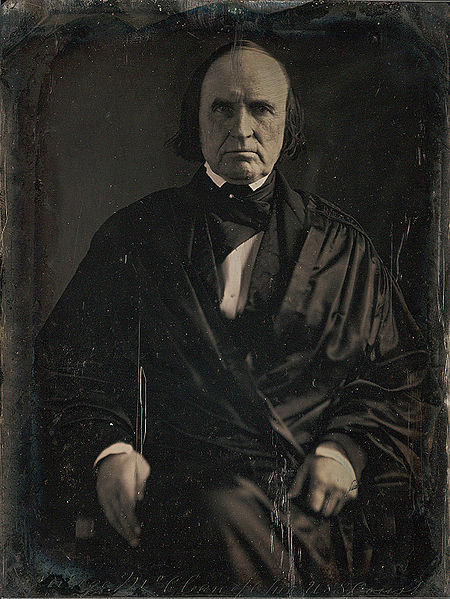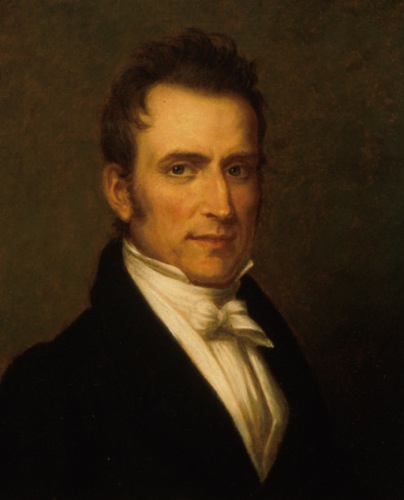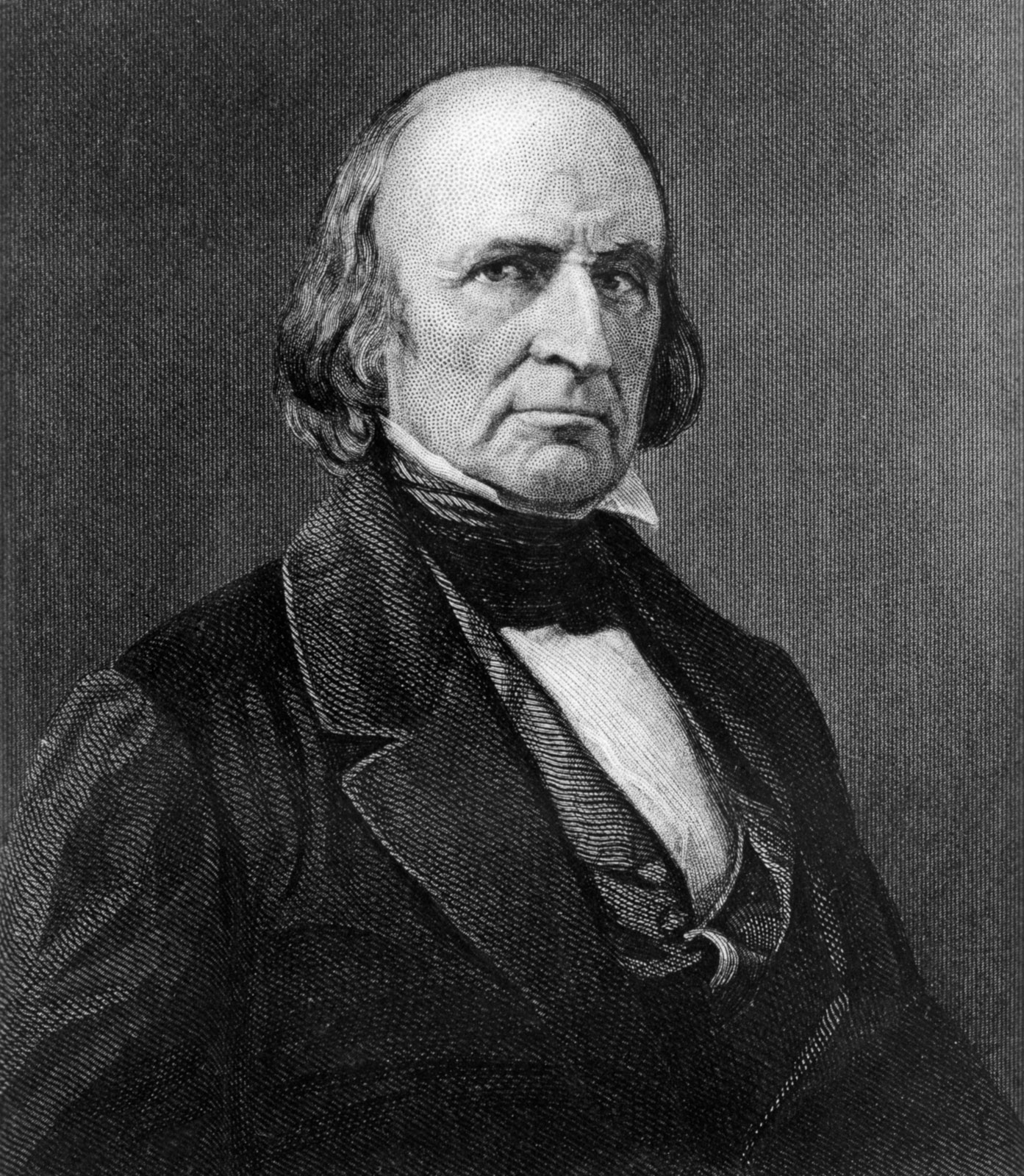<Back to Index>
- Chemist Niels Janniksen Bjerrum, 1879
- Ballet Master and Choreographer Victor Marius Alphonse Petipa, 1818
- Associate Justice of the U.S. Supreme Court John McLean, 1785
PAGE SPONSOR



John McLean (March 11, 1785 – April 4, 1861) was an American jurist and politician who served in the United States Congress, as U.S. Postmaster General, and as a justice on the Ohio and U.S. Supreme Courts, and was often discussed for the Whig and Republican nominations for President.
McLean was born in Morris County, New Jersey, the son of Fergus McLean and Sophia Blackford. After living in a succession of frontier towns, Morgantown, Virginia; Nicholasville, Kentucky; and Maysville, Kentucky; in 1797 his family settled in Ridgeville, Warren County, Ohio. His brother William was also a successful Ohio politician. His brother Finis McLean was a United States Representative from Kentucky.
He read law and was admitted to the bar in 1807. That same year he founded The Western Star, a weekly newspaper at Lebanon, the Warren County seat, where he practiced law. He was elected to the U.S. House for the Thirteenth and Fourteenth Congresses, serving from March 4, 1813, until he resigned in 1816 to take a seat on the Ohio Supreme Court, to which he had been elected on February 17, 1816, replacing William W. Irwin.
He resigned his judgeship in 1822 to take President James Monroe's appointment to be Commissioner of the General Land Office, serving until 1823, when Monroe appointed him United States Postmaster General. McLean served in that post from December 9, 1823, to March 7, 1829, under Monroe and John Quincy Adams, presiding over a massive expansion of the Post Office into the new western states and territories and the elevation of the Postmaster Generalship to a cabinet office. While Postmaster General, McLean supported Andrew Jackson, who offered him the posts of Secretary of War and Secretary of the Navy. McLean declined both and was instead appointed to the Supreme Court by Jackson on March 6, 1829, to a seat vacated by Robert Trimble. McLean was confirmed by the United States Senate on March 7, 1829, receiving his commission the same day. Known
as "The Politician on the Supreme Court," he associated himself with
every party on the political spectrum, moving from a Jackson Democrat, to the Anti - Jackson Democrats, the Anti - Masonic Party, the Whigs, the Free Soilers, and finally the Republicans. Through the 1830s and 1840s, he was frequently discussed as a potential Whig presidential candidate. President John Tyler offered him the post of Secretary of War,
but he declined. Because of his anti - slavery extension positions, he
was considered by the new Republican party as a candidate in 1856.
Despite his efforts, the nomination went to John C. Frémont. In 1860, he tried again, winning twelve votes on the first ballot at the Republican convention in Chicago; Abraham Lincoln ultimately was nominated. In Dred Scott v. Sandford, his strong dissenting views are believed to have forced the hand of Chief Justice Roger Brooke Taney into
a harsher and more polarizing opinion than he originally planned. To
the argument that "a colored citizen would not be an agreeable member
of society", McLean responded, "This is more a matter of taste than of
law." He also wrote the Court's opinion denying there was a common - law copyright in American law in Wheaton v. Peters.
During the 1820s, McLean was a member of the prestigious society, Columbian Institute for the Promotion of Arts and Sciences, who counted among their members former presidents Andrew Jackson and John Quincy Adams and
many prominent men of the day, including well known representatives of
the military, government service, medical and other professions.
He died in
Cincinnati, Ohio, and was buried in Spring Grove Cemetery, Cincinnati. Prior to his death, McLean had been the last surviving member of the Monroe and Adams Cabinets. His son, Nathaniel C. McLean, was a Union general in the American Civil War. His daughter Evelyn McLean married Joseph Pannell Taylor, brother of U.S.President Zachary Taylor. During the Civil War, Camp John McLean, a Union Army training camp in Cincinnati, was named in his honor. His remains are interred at Spring Grove Cemetery in Cincinnati, Ohio. Also interred there is Stanley Matthews, another Associate Justice.